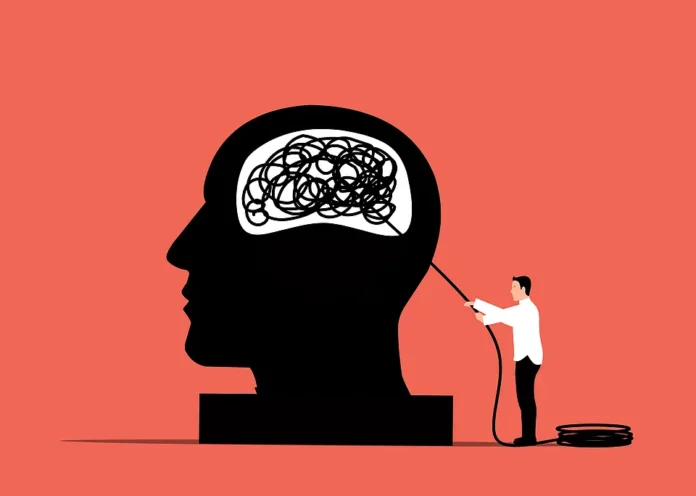Modern life pushes us to stay alert, move faster, and produce more. The idea of “Natural Doping” comes from a simple question: is it possible to boost energy and mental sharpness without relying on pills or chemical formulas? The answer points toward food, sleep, breathing, and movement—things we already have but rarely manage well.
Today, while some people look for stimulation through online activities or games such as mines, others are rediscovering the body’s own ways to build endurance and focus through natural means.
What “Natural Doping” Really Means
The phrase can sound contradictory. Doping usually implies taking something artificial. But in this context, it refers to the body’s ability to create its own form of stimulation. It’s not about breaking limits, but about using what’s already inside us more efficiently.
The human body constantly adjusts to stress, hunger, temperature, and movement. What we eat and how we live can either help or block these natural responses. Natural doping is about learning to work with those signals instead of against them.

Food: The Body’s Quiet Chemistry
When we talk about performance, people often think of caffeine, energy drinks, or protein powders. But food, in its simplest form, already contains what the body needs to stay active and recover.
Slow Fuel
Complex carbohydrates from grains, beans, or tubers give energy over time. They prevent the sudden highs and lows that come from processed sugar. A person who eats oats in the morning will likely stay focused longer than someone who relies on quick snacks.
Iron and Blood Flow
Iron allows oxygen to move through the blood. Without enough of it, fatigue appears even before the day begins. Foods like lentils, spinach, or seeds can improve endurance in quiet but consistent ways.
Fats and Brain Function
The brain depends on fats for structure and signaling. Sources such as nuts or olive oil support mental stability and reaction time. These aren’t magic foods, but their effects build up when eaten regularly.
Water and Salts
Hydration sounds obvious, but dehydration is one of the most common reasons for low energy. Water carries nutrients and keeps muscles from cramping. A pinch of natural salt in meals helps retain balance, especially for people who sweat a lot.
Habits That Shape Energy
Energy doesn’t come only from nutrition. How we move, breathe, and rest shapes how the body uses what it consumes. Some of these habits sound simple but change how energy circulates.
Sleep as a Tool
Sleep resets hormones, repairs muscles, and clears waste from the brain. When we cut sleep short, no diet can make up for it. Setting a routine—same hour to bed, same hour to rise—creates stability. That rhythm trains the body to restore itself.
Movement in Daily Life
We don’t have to run marathons to stay fit. Movement throughout the day matters more. Walking, stretching, or climbing stairs maintains blood flow and clears tension. Physical effort also affects mood; it releases endorphins, natural chemicals that calm and focus us.
Breathing with Awareness
Breathing patterns mirror mental states. Fast, shallow breaths signal stress; slower ones tell the body it’s safe. A few minutes of deep breathing can lower heart rate and improve attention. Some people do this before meetings or exercise, noticing that focus becomes sharper afterward.
Mental Habits and Inner Balance

Food and exercise affect the body. Thought patterns affect everything else. Mental clutter drains energy as much as poor nutrition does.
Practices like mindfulness or journaling train attention. They don’t require special tools—just time to notice thoughts and separate what’s useful from what’s noise. The result isn’t mystical; it’s practical. A clearer mind wastes less energy.
Also, small doses of solitude or quiet are not luxuries. They allow the nervous system to reset. People who take short breaks away from screens often return with renewed focus, even after five minutes.
Lessons from Traditional Knowledge
Long before laboratories studied nutrients, many cultures already used food and rhythm as medicine. Fasting, herbal teas, or simple meals based on grains and vegetables weren’t trends; they were ways to stay resilient.
Today, science gives numbers to what tradition observed. Fasting can regulate insulin. Fermented foods influence gut bacteria, which in turn affect mood. Leafy greens improve blood circulation by providing natural nitrates.
The interesting point is how both knowledge systems—traditional and modern—arrive at similar conclusions. The body performs better when it isn’t overloaded.
When “Natural” Becomes Too Much
Even natural methods can go wrong when pushed too far. Coffee helps concentration, but too much leads to anxiety and poor sleep. Intense exercise builds strength, but without rest it weakens immunity.
Natural doping depends on moderation. The goal isn’t to feel powerful for one day but to keep steady for many. The body gives feedback: if you wake up tired, eat too fast, or lose focus often, those are signals to adjust, not to push harder.
Creating a Personal System
There isn’t one perfect formula. Each person’s metabolism, work rhythm, and environment differ. The key is to observe. What meals leave you clear-headed? What times of day feel more productive? Writing these things down for a week can reveal patterns.
Experiment gradually. Replace one processed snack with fruit or nuts. Go to bed half an hour earlier. Take short walks between long work periods. Change one thing at a time, watch what happens, and keep what works. This approach feels slower than supplements, but it lasts longer.
The Broader Meaning of “Natural Doping”
In a culture built on speed and stimulation, slowing down might seem counterintuitive. But natural doping is not about intensity; it’s about awareness. It challenges the idea that more input equals better results.
It also asks us to trust our own biology. The body already knows how to manage energy, but it needs conditions that allow it to do so: good food, enough water, consistent rest, and honest attention to signals.
Conclusion

“Natural Doping” isn’t a miracle formula. It’s a reminder that energy and focus come from everyday decisions. Eating real food, sleeping on time, breathing fully, moving often—these small acts create stability.
The path is slower, but it’s also more sustainable. When the body and mind align, there’s no need for artificial boosters. The power comes from within, renewed each day through habits that anyone can choose, one step at a time.







